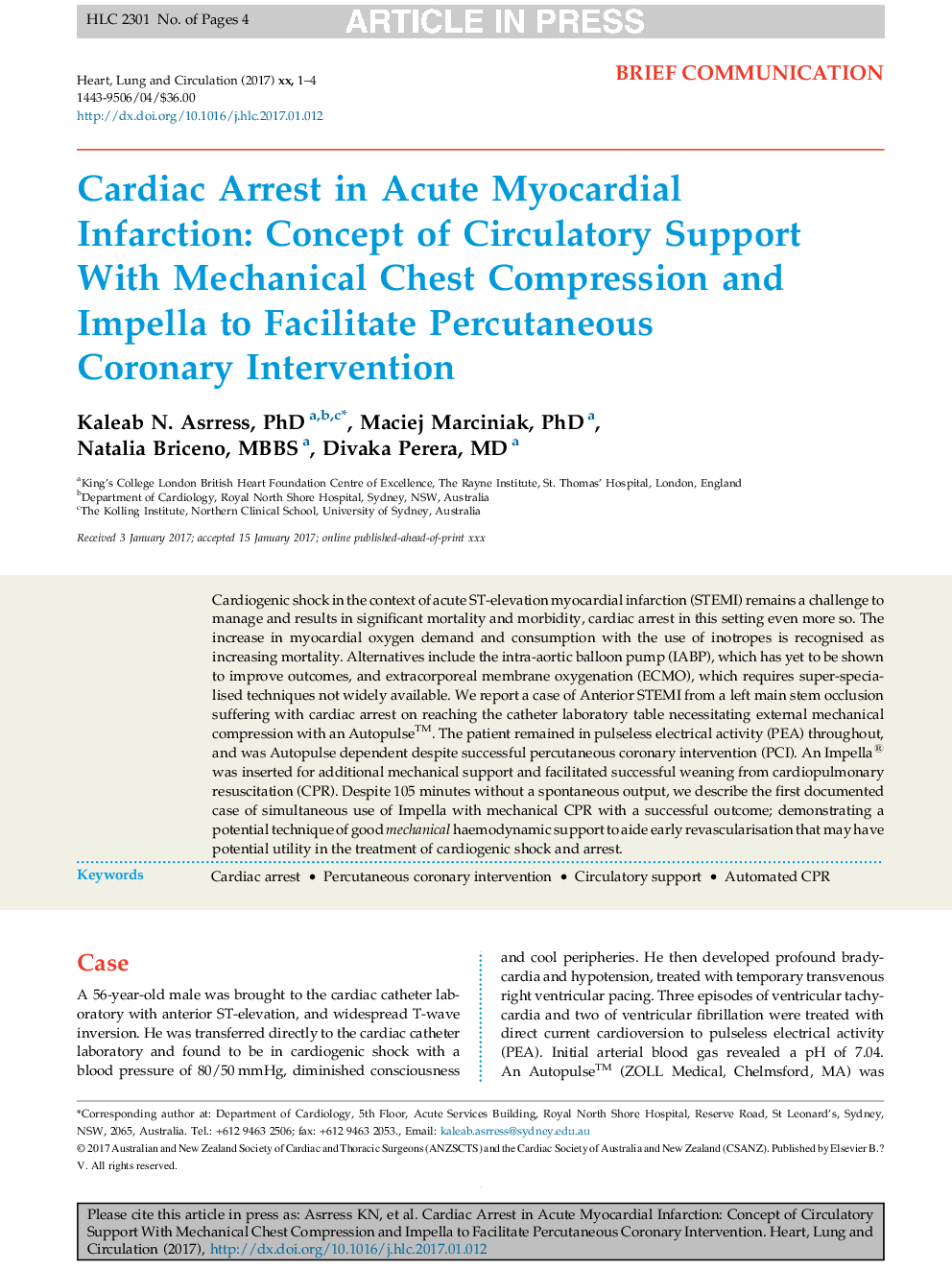| Article ID | Journal | Published Year | Pages | File Type |
|---|---|---|---|---|
| 5602987 | Heart, Lung and Circulation | 2017 | 4 Pages |
Abstract
Cardiogenic shock in the context of acute ST-elevation myocardial infarction (STEMI) remains a challenge to manage and results in significant mortality and morbidity, cardiac arrest in this setting even more so. The increase in myocardial oxygen demand and consumption with the use of inotropes is recognised as increasing mortality. Alternatives include the intra-aortic balloon pump (IABP), which has yet to be shown to improve outcomes, and extracorporeal membrane oxygenation (ECMO), which requires super-specialised techniques not widely available. We report a case of Anterior STEMI from a left main stem occlusion suffering with cardiac arrest on reaching the catheter laboratory table necessitating external mechanical compression with an Autopulseâ¢. The patient remained in pulseless electrical activity (PEA) throughout, and was Autopulse dependent despite successful percutaneous coronary intervention (PCI). An Impella® was inserted for additional mechanical support and facilitated successful weaning from cardiopulmonary resuscitation (CPR). Despite 105 minutes without a spontaneous output, we describe the first documented case of simultaneous use of Impella with mechanical CPR with a successful outcome; demonstrating a potential technique of good mechanical haemodynamic support to aide early revascularisation that may have potential utility in the treatment of cardiogenic shock and arrest.
Related Topics
Health Sciences
Medicine and Dentistry
Cardiology and Cardiovascular Medicine
Authors
Kaleab N. PhD, Maciej PhD, Natalia MBBS, Divaka MD,
